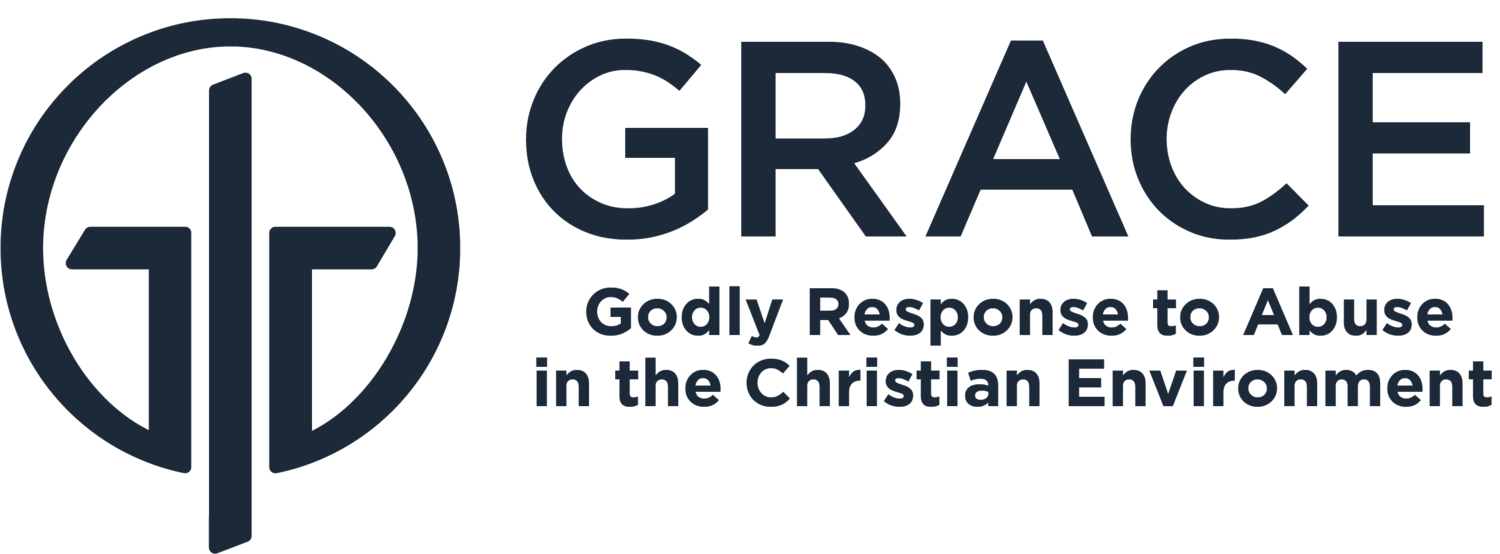
For Survivors & Advocates
Support and Resources
If you are a survivor or lay advocate, you may have come to this page because you or someone you know has experienced spiritual, sexual, or physical abuse in a Christian setting. Please know that you are not alone in your efforts to secure justice and create change. Your voice, life, and safety are precious and should be protected.
General Resources
GRACE Live Conversations
Join our free monthly webinars to hear from experts and thought leaders on a variety of topics around faith, abuse, and church harm.
GRACE’s YouTube Channel
Access GRACE’s extensive library of past GRACE Live Conversations, interviews, and trainings on YouTube. A few videos that make excellent starting points include:
The GRACE Awakening Podcast
Tune in to GRACE’s podcast for longer-form conversations on difficult topics. Hosted by GRACE staff, these episodes feature interviews with thought leaders, abuse experts, survivors, and change-makers.
Sexual Abuse
Books
Rid Of My Disgrace: Hope And Healing For Victims Of Sexual Assault
By Justin Holcomb & Lindsey Holcomb
By Diane Langberg
What the Bible Says to Abuse Survivors and Those Who Hurt Them
By Victor Vieth
Caring for Survivors of Sexual Abuse
By Basyle Tchividkian & Justin Holcomb
Counseling Survivors of Sexual Abuse
By Diane Langberg
The Long Journey Home: Understanding and Ministering to the Sexually Abused
By Andrew J. Schmutzer
Previous GRACE Live Conversations
Domestic Abuse / Intimate Partner Violence
Books
Is It My Fault? Hope and Healing for those Suffering Domestic Violence
By Justin Holcomb & Lindsey Holcomb, with Elyse M. Fitzpatrick
When Home Hurts: A Guide for Responding Wisely to Domestic Abuse in Your Church
By Jeremy Pierre & Greg Wilson
Taking It Seriously: A Faith Leader's Guide to Domestic Violence
By Geneece Goertzen
Previous GRACE Live Conversations
Child Abuse
Books
God Made All Of Me: A Book To Help Children Protect Their Bodies
By Justin & Lindsey Holcomb
On This Rock: A Call to Center the Christian Response to Child Abuse on the Life and Words of Jesus
By Victor Vieth
Protecting Children From Abuse In The Church
By Basyle Tchividjian
The Child Safeguarding Policy Guide for Churches and Ministries
By Basyle Tchividjian & Shira Berkovits
Previous GRACE Live Conversations
Spiritual Abuse
Books
Something’s Not Right: Decoding the Hidden Tactics of Abuse--and Freeing Yourself from Its Power
By Wade Mullen
Redeeming Power: Understanding Authority and Abuse in the Church
By Diane Langberg
By Diane Langberg
A Church Called Tov: Forming a Goodness Culture that Resists Abuses of Power and Promotes Healing
By Scot McKnight
Frequently Asked Questions
-
We suggest looking for a church that has a thorough safeguarding policy that provides:
Clear direction for responding to allegations of abuse or misconduct.
Clear direction for responding to boundary violations.
Clear steps of accountability for all, including leadership
Direction for all in the church or organization to follow if they have any concerns.
The policy should be readily accessible by anyone who attends, and you can ask to see their policy. Additionally, you can ask church leadership if they consider themselves mandated reporters of child abuse. You can also ask leaders about their understanding of trauma and how that understanding of trauma shapes their understanding of pastoral care.
You may find Toward a More Trauma-Informed Church by GRACE Executive Director Pete Singer helpful; this piece outlines some ways churches can engage the Six Principles of Trauma-Informed Care. Victor Veith (a GRACE board member) and Pete Singer have also written on the spiritual impact of abuse, and this article speaks to the importance of being equipped, as a community of faith, to care for victims of abuse.
-
We strongly recommend that you seek out a therapist who specializes in trauma. The therapist should also understand and employ trauma-informed practices. Please see more advice here: Finding A Trauma Therapist- Ideas, Insights, Questions to Ask.
-
GRACE's Independent Investigations can only be conducted through a direct contractual relationship with a church or organization.
Why? Our investigations rely entirely on the institution's cooperation to release documents, compel participation, and access information. GRACE does not have the legal authority to require these actions.
Your Role in Advocacy: The most effective way to secure a comprehensive, objective, and trauma-informed investigation is to encourage your church or organization to formally engage an external expert like GRACE.
Encourage Integrity: Engaging an independent, multidisciplinary team demonstrates a commitment to integrity and justice over institutional self-protection.
If you are able to safely share this information with your leadership, our resource details the necessity of independent expertise:
